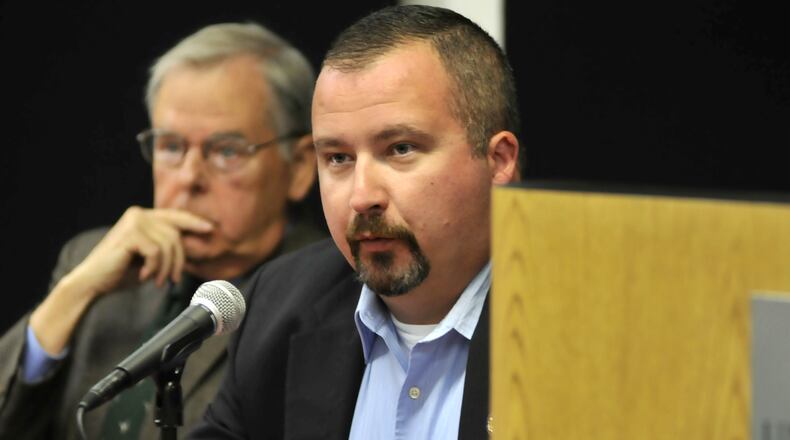MORE: Heartbeat abortion bill passes Ohio House committee
Retherford, in an exclusive interview with the Journal-News, said this type of police evidence was protected through a court case — including the appeals process — until a December 2016 Ohio Supreme Court ruling.
In a split decision, the justices ruled in Caster vs. Columbus that these pieces of investigative evidence could be released once the initial court case was concluded.
Donald Caster, an attorney engaged by the Ohio Innocence Project, requested police records related to the 2007 murder conviction of Adam Saleh. The Columbus Division of Police rejected the request, indicating any records would be released at the completion of Saleh’s case, even though all appeals had been exhausted.
The majority of the Ohio Supreme Court justices determined Caster “had a clear legal right” to the requested records.
Hamilton Police Chief Craig Bucheit said the legislation is a “no-brainer” in protecting victims from having to re-live a traumatic experience. He said the detective reached out to Retherford after the department reviewed case law.
MORE: Ohio’s Kasich, Brown react to Alabama election results
“We take our role in protecting victims very seriously, and we want to make sure no victim is re-victimized by loopholes,” Bucheit said. “We’re all working here for the common good for the people, and we all see the problem. It’s a matter of recognizing a potential problem and the opportunity for someone to be re-victimized.”
Admitting the likelihood is low, Retherford said there would be nothing to prevent an accomplice or a perpetrator of a crime from filing a public records request to receive copies of “compromising or embarrassing photos and videos.”
“In theory, you could be re-victimizing the victim again,” said Retherford. “It’s still a possibility. That’s why it’s important.”
Dennis Hetzel, president and executive director of the Ohio News Media Association, said the legislation is “obviously is well-intentioned,” but said “it’s unnecessary and adds yet another exception to the ever-growing list of exemptions to our open records law.”
“Ohio already recognizes a constitutional right to privacy, and there are no examples to our knowledge of such images being released,” he said. “We also are concerned that the language lacks specificity and could lead to the withholding of additional public records.”
Retherford contends that “instead of being reactive to a scenario that could happen, let’s be proactive.”
Bucheit said they would fight any request for images or videos of a victim in a sexually compromising situation, but asked, “Why take that chance? Why fight it in court and hope you’re going to win as opposed to shutting down an absurd loophole in the law.”
Retherford said 66 legislators that have signed on to his bill, which is likely to get its first committee hearing after the first of the year.
About the Author

